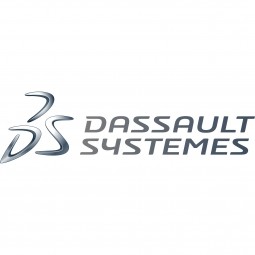Download PDF
Plastic Technologies, Inc.: Leveraging Simulation for Lightweighting and Root-Cause Analysis
Technology Category
- Analytics & Modeling - Digital Twin / Simulation
- Application Infrastructure & Middleware - Data Visualization
- Functional Applications - Product Data Management Systems
Applicable Industries
- Consumer Goods
- Retail
Applicable Functions
- Product Research & Development
- Quality Assurance
Use Cases
- Digital Twin
- Inventory Management
- Predictive Maintenance
Services
- Software Design & Engineering Services
- System Integration
The Challenge
Plastic Technologies Inc. (PTI), a leader in plastic package design services, was seeking a more cost-effective and efficient alternative to extensive physical prototyping and testing. The company wanted to help its customers lightweight plastic container designs and aid in root-cause analysis of product failures. The focus was on designing lighter-weight versions of current packaging to reduce costs and meet consumers’ demand for more sustainable products. However, achieving the optimal design that can offset lightweight material composition with a structure that still meets stringent performance requirements was a challenge.
About The Customer
Plastic Technologies Inc. (PTI) is a leader in plastic package design services. The company has a broad range of clients, including consumer product companies, plastic processors, and material suppliers. In a typical year, PTI performs as many as 500 unique design developments and an average of five iterations per design for clients. The company recently completed its 10,000th bottle design since its inception in 1985. PTI employs state-of-the-art CAD tools, including Dassault Systèmes’ CATIA application, in the development of innovative designs for its customers.
The Solution
PTI adopted SIMULIA, a key component of Perfect Package Industry Solution Experience, in combination with the company’s proprietary simulation tool, to vet lightweight PET container designs based on top load and side-load performance in a virtual world. Abaqus also helped PTI’s efforts to optimize preform parameters and eliminate performance failures. The simulation-led design approach enabled the PTI design team to greatly reduce the amount of time and resources spent on building and testing physical prototypes. Abaqus was often employed in concert with PTI’s proprietary virtual-prototyping software, which was used to simulate the reheating of preforms, replicate the blow molding of containers, and predict the material thickness distribution of associated mechanical properties.
Operational Impact
Quantitative Benefit
Related Case Studies.
.png)
Case Study
Improving Vending Machine Profitability with the Internet of Things (IoT)
The vending industry is undergoing a sea change, taking advantage of new technologies to go beyond just delivering snacks to creating a new retail location. Intelligent vending machines can be found in many public locations as well as company facilities, selling different types of goods and services, including even computer accessories, gold bars, tickets, and office supplies. With increasing sophistication, they may also provide time- and location-based data pertaining to sales, inventory, and customer preferences. But at the end of the day, vending machine operators know greater profitability is driven by higher sales and lower operating costs.

Case Study
Improving Production Line Efficiency with Ethernet Micro RTU Controller
Moxa was asked to provide a connectivity solution for one of the world's leading cosmetics companies. This multinational corporation, with retail presence in 130 countries, 23 global braches, and over 66,000 employees, sought to improve the efficiency of their production process by migrating from manual monitoring to an automatic productivity monitoring system. The production line was being monitored by ABB Real-TPI, a factory information system that offers data collection and analysis to improve plant efficiency. Due to software limitations, the customer needed an OPC server and a corresponding I/O solution to collect data from additional sensor devices for the Real-TPI system. The goal is to enable the factory information system to more thoroughly collect data from every corner of the production line. This will improve its ability to measure Overall Equipment Effectiveness (OEE) and translate into increased production efficiencies. System Requirements • Instant status updates while still consuming minimal bandwidth to relieve strain on limited factory networks • Interoperable with ABB Real-TPI • Small form factor appropriate for deployment where space is scarce • Remote software management and configuration to simplify operations

Case Study
How Sirqul’s IoT Platform is Crafting Carrefour’s New In-Store Experiences
Carrefour Taiwan’s goal is to be completely digital by end of 2018. Out-dated manual methods for analysis and assumptions limited Carrefour’s ability to change the customer experience and were void of real-time decision-making capabilities. Rather than relying solely on sales data, assumptions, and disparate systems, Carrefour Taiwan’s CEO led an initiative to find a connected IoT solution that could give the team the ability to make real-time changes and more informed decisions. Prior to implementing, Carrefour struggled to address their conversion rates and did not have the proper insights into the customer decision-making process nor how to make an immediate impact without losing customer confidence.

Case Study
Digital Retail Security Solutions
Sennco wanted to help its retail customers increase sales and profits by developing an innovative alarm system as opposed to conventional connected alarms that are permanently tethered to display products. These traditional security systems were cumbersome and intrusive to the customer shopping experience. Additionally, they provided no useful data or analytics.







